Stop Fraud in Its Tracks: Key Ways to Secure Your Finances
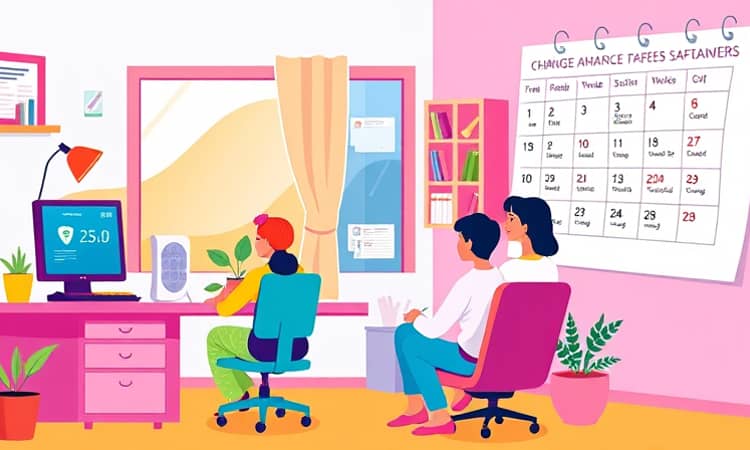
Fraud is a pervasive issue that can happen to anyone, and it's essential to be aware of how to protect yourself from it. This article outlines key strategies to secure your finances and prevent fraud before it can occur.
- Install security software on your devices
- Regularly change your passwords
- Educate your family about common scams
By understanding various types of fraud, securing personal information, and being vigilant, you can significantly decrease the risk of becoming a victim of financial scams. Taking proactive measures will protect not only your finances but also your peace of mind.
1. Understand the Different Types of Fraud
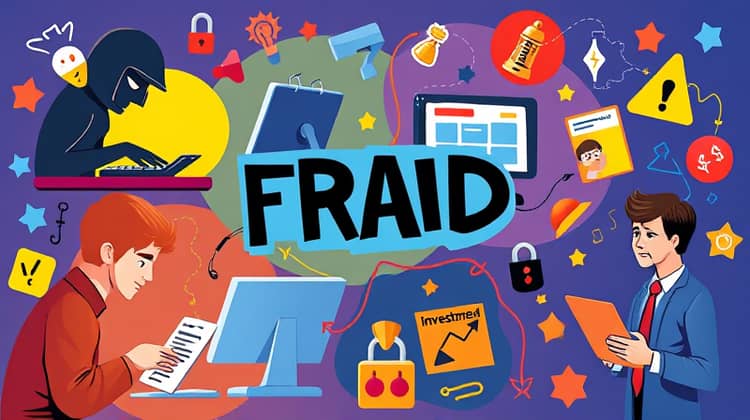
Awareness is the first line of defense against fraud. Understanding the different types of fraud can equip you with the knowledge needed to recognize potential threats. Each type has its distinct characteristics and methods of operation, making it crucial to stay informed.
Fraud can take many forms, and it's important to familiarize yourself with the most common types to avoid falling victim. Being informed helps you to spot warning signs early on and take protective actions.
- Identity Theft
- Phishing
- Credit Card Fraud
- Investment Scams
Recognition of these forms of fraud serves as an essential tool for protecting your financial assets and personal information. It sets the stage for implementing preventative measures effectively.
a. Identity Theft
Identity theft occurs when someone unlawfully obtains and uses your personal information, often for financial gain. This type of fraud can have devastating effects on your credit and financial security.
With advances in technology, identity theft has become easier and more prevalent. Cybercriminals employ various tactics to gain access to sensitive information, ranging from hacking into databases to stealing physical documents.
- Monitor your credit reports regularly for inaccuracies or unfamiliar accounts.
- Use alerts from your bank or credit card company for unusual activities.
- Securely store personal documents and shred sensitive information before disposal.
Taking steps to safeguard yourself against identity theft is vital in maintaining your financial health.
b. Phishing
Phishing is a common tactic used by scammers to acquire sensitive data by masquerading as a trustworthy entity in electronic communications. This can happen through emails, text messages, or even phone calls.
The aim of phishing attacks is typically to deceive the target into providing valuable information such as login credentials, personal identification, or financial details.
- Look for inconsistencies in communication, such as typos or unusual language.
- Never click on links from unknown sources.
- Verify the identity of the so-called sender before responding.
Recognizing phishing attempts is crucial in protecting your information and finances.
c. Credit Card Fraud
Credit card fraud is when someone uses your credit card information without your consent. It's a widespread concern, especially in today's digital marketplace.
This type of fraud can lead to significant financial losses and recovery can often be a long and tedious process, necessitating prompt action on your part.
- Report lost or stolen cards immediately to your bank or credit card company.
- Monitor your statements regularly for unfamiliar transactions.
- Use virtual credit card numbers for online shopping where possible.
Addressing issues of credit card fraud can minimize the impact on your finances and improve your overall security.
d. Investment Scams
Investment scams involve fraudulent schemes aiming to convince individuals to invest in non-existent or substandard opportunities. These scams often promise high returns with little risk involved.
Understanding the telltale signs of investment fraud can help you avoid potentially devastating losses.
- Be skeptical of unsolicited investment offers, particularly those promising high returns.
- Research the individual or company thoroughly before making any decisions.
- Consult with a financial advisor if you're uncertain about an investment opportunity.
Being informed about investment scams can provide you with the knowledge needed to protect your hard-earned money.
2. Secure Your Personal Information
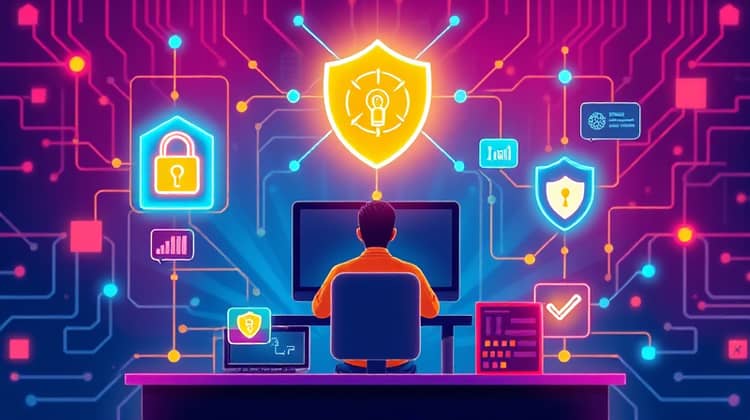
Securing your personal information is paramount to safeguarding your finances. With the increasing reliance on digital platforms, this has become more critical than ever.
Adopting security measures ensures that personal data remains protected from prying eyes and unauthorized access.
- Use encryption for sensitive data storage.
- Regularly update passwords and security questions for online accounts.
- Keep antivirus software updated on all devices.
These steps, while basic, provide foundational protection against various forms of fraud and theft.
3. Be Wary of Unsolicited Requests

Unsolicited requests can come in various forms, from phone calls to emails that ask for your personal or financial information. Staying cautious regarding these communications is crucial.
Treating unexpected requests for information with suspicion helps in avoiding scams asking for verification of data under false pretenses.
4. Monitor Your Financial Accounts Regularly

Regular monitoring of your financial accounts can alert you to unusual activity that may indicate fraud. It's a simple yet effective method of reducing risk.
By keeping a close eye on your transactions, you increase your chances of catching fraudulent activities early.
- Set up account alerts for unusual transactions
- Review statements monthly
- Track spending habits and be aware of any anomalies
By regularly monitoring your financial accounts, you can detect potential issues before they escalate, allowing for timely intervention.
5. Use Strong, Unique Passwords
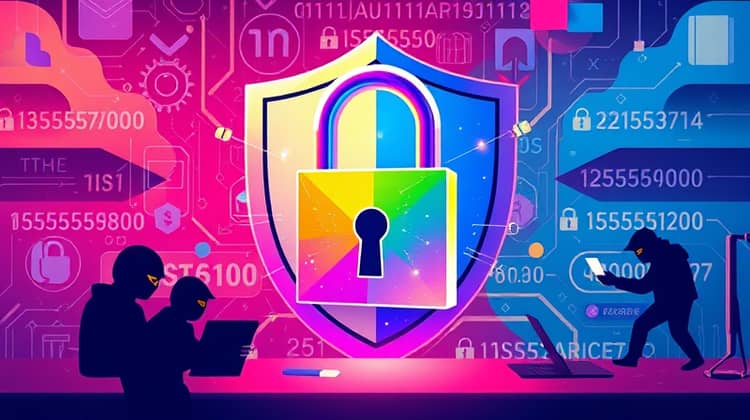
The strength of your passwords plays a significant role in the security of your accounts. Weak passwords can be easily compromised, leading to unauthorized access to personal information.
Creating unique passwords for different accounts makes it more challenging for thieves to gain access across multiple platforms.
- Use a combination of letters, numbers, and symbols.
- Avoid using easily guessed information such as birthdays or pet names.
- Update passwords regularly and avoid recycling old ones.
Secure passwords can act as a first line of defense against potential security breaches.
6. Enable Two-Factor Authentication
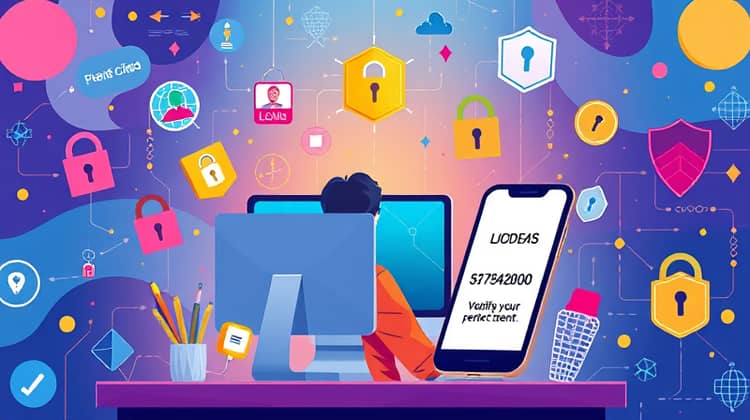
Two-factor authentication adds an extra layer of security to your accounts, making it much more difficult for unauthorized individuals to gain access. It requires more than just a password, typically asking for a code sent to your phone or email.
This enhanced security measure is becoming a standard practice among many service providers and offers significant protection against hacks and unauthorized access.
- Choose an authentication method that suits your needs
- Enable 2FA on all accounts that offer it
- Regularly review if your devices are secure before accessing sensitive information
Implementing two-factor authentication is a critical step in fortifying your online security.
7. Be Cautious with Public Wi-Fi

While public Wi-Fi offers convenience, it can pose serious risks to your financial information. Cybercriminals can easily intercept data transmitted over unsecured networks.
Exercising caution when using public Wi-Fi services is essential to protect yourself from potential attacks.
- Avoid accessing sensitive accounts while on public networks
- Use a virtual private network (VPN) for an added layer of security
- Log out from accounts when finished
Awareness of public Wi-Fi risks allows you to enjoy the convenience of connectivity while protecting your vital information.
8. Don’t Share More Than Necessary

Oversharing personal information, whether online or offline, can lead to unwanted consequences, including fraud. It is essential to limit the amount of personal information shared in public settings.
Not only does excessive sharing increase the risk of identity theft, but it can also lead to unwarranted solicitations and scams.
9. Educate Yourself and Others

Education is powerful in the fight against fraud. Staying informed about the latest scams can help you and your loved ones avoid becoming victims.
By sharing knowledge about fraud with others, you create a more vigilant community that is less susceptible to these malicious activities.
- Stay updated on the latest fraud trends and tactics.
- Attend seminars or workshops focused on fraud prevention.
- Share tips and strategies with friends and family.
By maintaining an informed group, the impact of fraud can be significantly reduced.
10. Trust Your Instincts

Your intuition plays a vital role when feeling that something is amiss. If a deal seems too good to be true, it probably is. Cultivating a skeptical mindset can be your best defense.
Taking a moment to evaluate situations before taking action can often save you from falling prey to fraud.
Conclusion

Fraud prevention requires vigilance and proactive measures to safeguard your financial stability. Knowing your vulnerabilities and appreciating the forms fraud can take is essential to staying safe.
By implementing the strategies outlined in this piece, you can significantly blunt the risks associated with fraud, thereby protecting your finances and personal well-being.
Always remember that your first defense against fraud is your awareness and preparedness.






